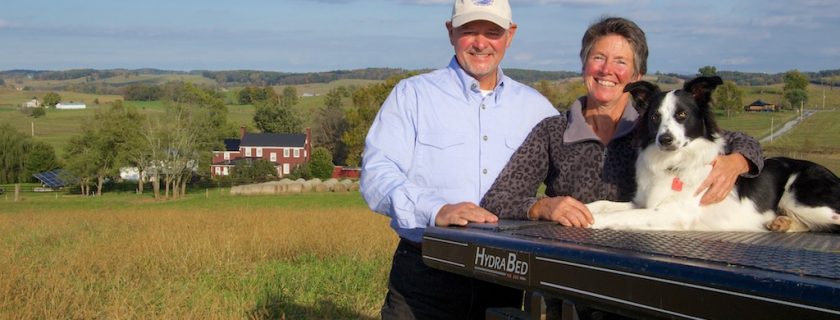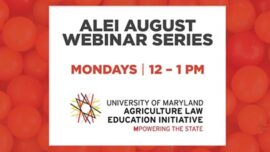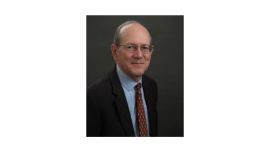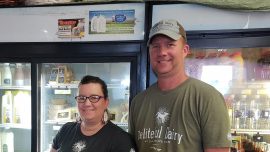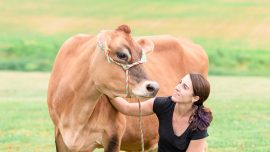By Sarah Everhart
Bobby Whitescarver and his wife Jeanne Hoffman operate Meadowview Farm, a cow-calf operation in Swoope, Virginia. According to Whitescarver, they have implemented many best management practices in order to limit environmental impacts to the Middle River that runs through their farm. “Our farm produces wholesome beef and clean water,” he says. The practices include rotational grazing, riparian forest buffers, stream fencing, and nutrient management. Whitescarver has a unique interest in these best management practices, in addition to being a farmer, Whitescarver is a watershed restoration consultant, award-winning writer and educator, and spent 31 years working for the U.S. Department of Agriculture’s Natural Resources Conservation Service.
According to Whitescarver, the farmers in the Chesapeake Bay watershed are national leaders in embracing agricultural conservation practices. “We have come a long way in the last 35 years, we now know the value of installing buffers and keeping cattle out our streams. Practices that are normal in our area such as no-till and cover crops are still not common in other parts of the country and those areas have the resultant serious water quality issues.”
Last month, the states of Maryland, Delaware, Virginia, the District of Columbia, Anne Arundel County, the Chesapeake Bay Foundation, Whitescarver and his wife Jeanne, and the Maryland Waterman’s Association filed a lawsuit against the U.S. Environmental Protection Agency (EPA) based on its failure to compel Pennsylvania and New York to do their part towards cleaning up the Chesapeake Bay. The Clean Water Act requires EPA to ensure the states design and implement plans such as the Chesapeake Blueprint, a federal and state legal agreement in which the parties agreed to make efforts to reach Bay restoration goals by 2025. According to the Chesapeake Bay Foundation (CBF), this litigation is a last resort after EPA has twice failed to respond to formal offers to meet and discuss the issues. Whitescarver felt compelled to be one of the named plaintiffs in the case because according to him, “farmers in Virginia and Maryland are doing their part toward the Bay Clean-up and equality of sacrifice ought to be part of the game.” When asked what he hopes the lawsuit will achieve, Whitescarver explained, “all the EPA has to do is do their job, namely enforce the Blueprint agreement. If two states out of the six don’t do their part there ought to be consequences.”
To hear more from Bobby Whitescarver and his co-panelist Jon Mueller, Vice President of Litigation for CBF, register for the Agricultural and Environmental Law Conference Series, hosted by the Agricultural Law Education Initiative.
